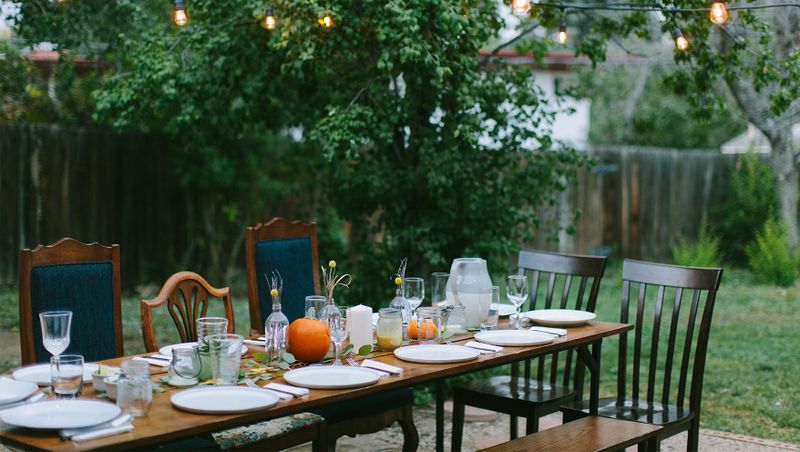Could Our Dinner Tables Be 21st Century Prophets?
In my dad’s song More to this Life, he sings, “Today I watched in silence as people passed me by, and I strained to see if there was something hidden in their eyes; but they all looked back at me as if to say, ‘Life just goes on.’” We all want to believe in a deeper meaning to life, and throughout our day, we experience spaces and places in time – prophetic signs of sorts – reminding us that we are a part of something much more cosmic than our little here and now.
It led me to wonder, what if we began envisioning our dining room table as one of these places? Some of you are rolling your eyes right now; “Oh yeah, my table prophesies alright. It tells me that I might go crazy tonight when my kids complain about the meal I’ve worked tirelessly to prepare.” For others of you, all you see in looking at your table are the empty chairs – painful reminders of loved ones lost. Life is moving at a fast pace, and for many of us the table is all-too-often reduced to being a messy nuisance – a place we must stop for a quick bite to eat before the next important meeting or appointment on the calendar.
While all the aforementioned scenarios have certainly unfolded at our table, I also find a subversive power in a table’s ability to make us all pause for a moment, affording us the space in time to be present with one another.
We’ve been fortunate to receive most of our furniture as hand-me-downs from family and friends. However, in wanting to make personal touches to our own family home, Tanner and I began dreaming about replacing our table. Instead of receiving gifts for my birthday this year, we asked friends and family to consider giving toward the purchase of our new table. We invited our community to join with us to help in creating an intentional, communal space within our home. A friend introduced us to Dave Hunt, a local worship pastor who has started a side project called Community Tables, crafting beautiful tables for the purpose of creating communal space to meet and fellowship together. With contributions from friends and family, Dave’s skilled craftsmanship, and many decisions from Tanner and I regarding design, stain color, and wood type, we built a table together.
A lot of life happens at the dinner table – some moments are planned while others may never be repeated. The table creates a space to be present, to commune with one another: we feast together with friends and family, we discuss life lessons and special moments around the table, we labor over work at the table, we host parties at the table, we pray – both alone and with our spouse – at the table. For those of us with kiddos, the table may also be a place wherein our patience is tested; drinks are spilled, children fall off chairs, homework is bemoaned, and meals may be disliked.
Despite our differences and conflicts that may arise, we continue to return to the table day after day for that which we all fundamentally need – sustenance. What if we began to see our tables as tangible reminders of the open and steady hands of God, always ready to provide love, hospitality, growth, and embrace? Furthermore, how would our meal times change if we envisioned the table as a dynamic space wherein humanity’s desire for relationship could be affirmed and met? Made in the image of the Triune God, as human beings “we do not discover who we are, we do not reach true humanness, in a solitary state; we discover it through mutual dependency, in weakness, in learning through belonging.”[1] The table affords us a space amidst our busy days to stop and be reminded of this eternal truth.
Upon delivering our new table, Dave Hunt told us that for much of the time he spent crafting our table, he listened to my dad’s record More to this Life and prayed for our family and the time we would spend gathered in this space. “But there’s more to this life than living and dying,” the chorus of the title track continues, “More than just trying to make it through the day; more to this life, more than these eyes alone can see, and there’s more than this life alone can be.” Let’s begin to see our tables as places where we can discover together, alongside our neighbors, our spouses, our children, or even within ourselves in quiet moments of meditation, the sense of belonging, of being at home, we find within the embrace of the Divine.
[1] Jean Vanier, Becoming Human (Toronto: Anansi, 1998), 41.
